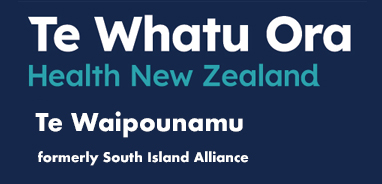
Dr Brendan Marshall, a GP and rural hospital generalist based in Greymouth, is helping to sustain rural maternity services on the West Coast.
Travelling to larger centres for maternity care can be a challenge for new mums who live rurally – along with transport to arrange, time off work and childcare to organise, there is also the issue of continuity of care. A Greymouth-based GP and rural hospital generalist is helping sustain rural maternity services on the West Coast by becoming the first person to complete an Advanced Diploma of Obstetrics through a New Zealand accredited provider.
Dr Brendan Marshall, who originally completed his medical training in Australia, recently finished his Advanced Diploma at Christchurch Women’s Hospital – paving the way for other GPs to follow the same path. Dr Marshall moved to the West Coast with his family in 2013, to a role involving general practice, ED, anaesthetics, and supporting paediatrics and orthopaedics after hours. “It was a chance to evolve my skills and be part of a workforce in a rural location that can provide a safe, sustainable model of health care,” he says.
Dr Marshall began training prior to moving to the Coast, and last year he continued his training through the Royal Australian and New Zealand College of Obstetricians and Gynaecologists to meet Australasian standards and further support the sustainability of West Coast maternity services. His diploma was based at Christchurch Women’s Hospital. It was jointly funded by West Coast DHB and Health Workforce New Zealand, supported by the South Island Workforce Development Hub (part of the South Island Alliance of DHBs).
“This qualification is used extensively in Australia, and no other centre in New Zealand has been accredited to deliver the diploma before. It means GPs are again involved in the care of expectant mothers living rurally on the Coast and helping the obstetricians based in Greymouth to ensure families don’t have to travel to Christchurch for certain services.
“As a team we provide essential obstetric services such as caesarean sections, assisted deliveries, and more advanced ultrasound skills on weekends. This model is all about collaboration with permanent obstetricians and midwives to support a more sustainable way of thinking, so that ultimately, obstetricians, midwives, rural nurses and rural doctors can work better together.”
Further benefits include continuity beyond the pregnancy, he says. “GPs are more likely to be involved in the whole spectrum of care, so this way we can link the care people get long before and long after their pregnancy.” Brendan also achieved the highest score for the ‘Advanced Oral Examination’ part of the assessment. He will officially receive an award to acknowledge this in Adelaide in September. “While an exam result is only one aspect of the training, it makes all the hard work to get the training over the line worth it, as it proves Christchurch Women’s Hospital can offer excellent training for Advanced Diploma candidates like myself. To have achieved this is a real feather in New Zealand’s cap, especially in terms of GP training that’s been offered for the first time – the results trumped Australia’s results, who have been providing it for many years. “I would like to thank everyone involved, including my wife, who was at home with our three young children while I was away from home for the training.”
Because of the small population and low birth rate on the West Coast, Dr Marshall is required to regularly work at Christchurch Women’s Hospital to maintain his competence.Providing this pathway for Rural Generalists to undertake within New Zealand offers an important workforce model, which rural DHBs in particular could introduce. It can assist with the recruitment and retention of the medical workforce, and helps support sustainable future workforce models for rural communities, says Philip Wheble, General Manager of West Coast DHB.
“It backs the view that in order to support rural maternity services, specialists delivering those services can be supported by medical practitioners who also have clinical expertise, academic abilities and professional qualities, to enable a safe and quality service in locations which are remote and without a tertiary hospital. We hope this will be one step closer towards the sustainable provision of safe maternity care for the rural population of New Zealand, and we are happy to hear from other GPs across the country who may also be interested in pursuing this pathway.”








